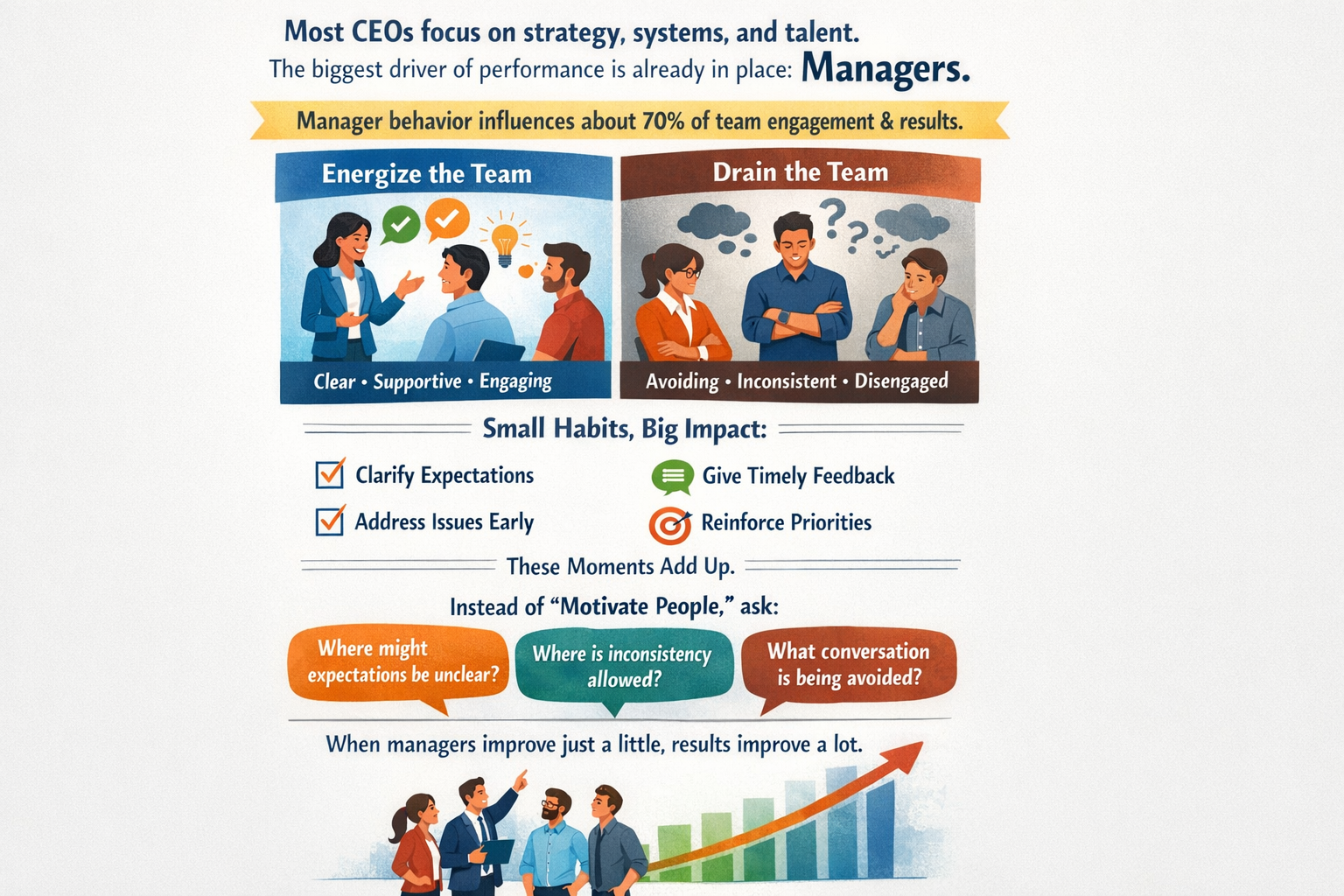Want More Engaged and Productive Employees? Set Clear Expectations.

Remember when you had a coach, teacher, mentor, parent, friend who believed in you 100%? Their total belief and high expectations for what you could do enabled you to perform better than you imagined, consistently and confidently.
Believing in people lifts them up. Cheering on your employees, giving them the support they need to grow, and the "can do it" message will increase productivity and employee engagement.
Interestingly, a recent Harvard Business study found that 69% of managers reported being uncomfortable communicating with their employees, and more than one-third were uncomfortable giving direct feedback.
Management expert, Ken Blanchard, taught the importance of catching people doing things right. Rather than just saying "thanks," be specific about the contributions your employee or team made. And guess what? You will get a lot more of precisely what you want as a manager.
Your employees will always move towards someone who encourages and away from anyone who diminishes them. Stephen Covey taught that making deposits into your employees' emotional and professional well-being builds trust and increases performance.
Effective managers empower their teams by pointing out their strengths and partnering together to develop their strengths and opportunities for growth. Imagine how your employees will feel when they feel you believe in them and are enthusiastically supported. Here are some best practices:
- Connect your "why" to your employee's "Why". Your employees need to know why what they do matters. More importantly, they need to find a sense of purpose in your organization's mission. Treat your employees like they make a difference, and they will.
- Be clear. Set clear expectations and goals. Meet with each of your direct reports periodically to make sure they understand what "good performance" is. And put it in writing so that it is easy to keep track of what has or hasn't been communicated.
- Co-Create Goals. Don't dictate. Co-creating goals and expectations will create higher buy-in and more significant accountability. Having a conversation with each of your employees will empower and support them to meet and exceed expectations.
- Provide C.A.R.E feedback. Continuous. Accessible. Regular. Empathetic. Schedule regular meetings continually. Be responsive, approachable, and empathetic. You have a unique opportunity to unleash the most significant contributions of others.
- Get out of their way. Develop agreed-to expectations with each employee. Give them the support they need. And then let them do their thing. Trust that they can solve the problem, find the solution, take care of the customer, innovate and inspire other team members.
As managers, you can make huge deposits into your employees' confidence and performance. Be the coach and mentor that helps your team members thrive and grow to do the very best they can. The result? Higher performance and higher engagement.


